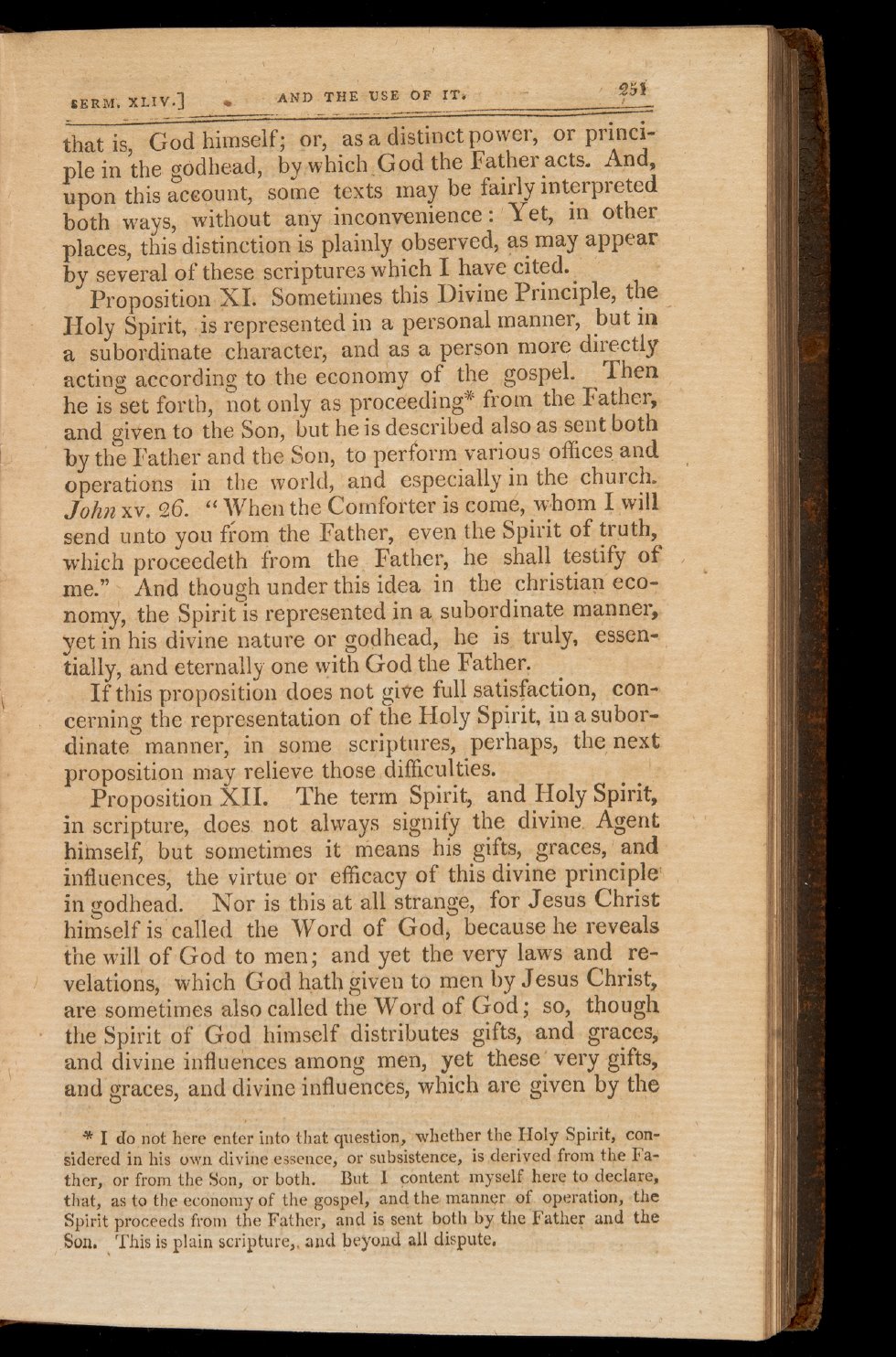

GERM.
XLIV.]
AND
THE
USE
OF
IT
that
is,
God
himself; or,
as
a distinct
power,
or princi-
ple
in the
godhead,
by
which,God
the
Father
acts.
And,
upon
this
account,
some
texts
may be fairly
interpreted
both
ways,
without
any inconvenience
:
Yet,
in
other
places,
this
distinction
is
plainly observed,
as
may
appear
by several
of
these
scriptures
which
I
have cited.
Proposition
X.I.
Sometimes this
Divine Principle,
the
Holy
Spirit,
is represented
in
a personal manner,
but
in
a
subordinate character, and
as
a person more directly
acting according
to the economy
of
the
gospel.
Then
he
is
set forth,
not
only as proceeding*
from
the Father,
and
given
to the
Son,
but
he
is
described
also as
sent
both
by the
Father
and
the
Son,
to
perform various
offices
and
operations
in the world,
and especially
in
the church.
John
xv. 26.
"When
the
Comforter
is
come, whom
I
will
send unto you from the
Father,
even the
Spirit
of
truth,
which
proceedeth
from
the
Father,
he
shall testify
of
me." And
though
under
this
idea
in
the christian
eco-
nomy,
the Spirit
is
represented in
a.
subordinate manner,
yet
in his divine
nature
or godhead,
he
is
truly, essen-
tially,
and
eternally one
with
God
the
Father.
If
this
proposition
does
not
give full
satisfaction, con
-
cerning the
representation of the
Holy Spirit,
in a
subor-
dinate
manner,
in some
scriptures, perhaps, the
next
proposition
may relieve those
difficulties.
Proposition
XII.
The
term
Spirit,
and
Holy Spirit,
in
scripture,
does.
not
always signify
the
divine.
Agent
hitnself,
but
sometimes
it
means
his gifts,
graces,
and
influences,
the
virtue
or
efficacy
of
this divine principle'
in godhead.
Nor
is
this
at
all strange,
for
Jesus Christ
himself
is
called the
Word
of
God, because
he
reveals
the
will
of God
to
men; and yet the very
laws and re-
velations, which
God bath
given to men by
Jesus
Christ,
are
sometimes also called the
Word of
God;
so,
though
the Spirit
of God
himself distributes
gifts,
and
graces,
and
divine influences
among
men,
yet these'
very
gifts,
and
graces,
and
divine influences, which
are
given by
the
*
I
do
not here enter into
that
question,
whether the Holy Spirit,
con-
sidered in
his own
divine essence, or subsistence,
is
derived
from
the Fa-
ther,
or
from
the
Son,
or both. But I
content myself here to declare,
that,
as
to
the economy of the gospel,
and the manner of operation, the
Spirit proceeds
from
the
Father,
and
is
sent both
by
the
Father
and
the
Son.
This
is
plain scripture,,
and
beyond
all
dispute.

















